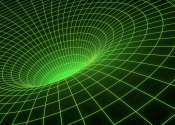'Baby quasars': James Webb Space Telescope spots little giants in the deep past
The James Webb Space Telescope has made one of the most unexpected findings within its first year of service: A high number of faint little red dots in the distant universe could change the way we understand the genesis of ...









